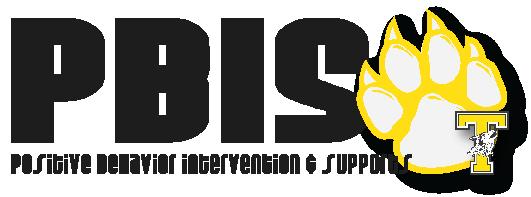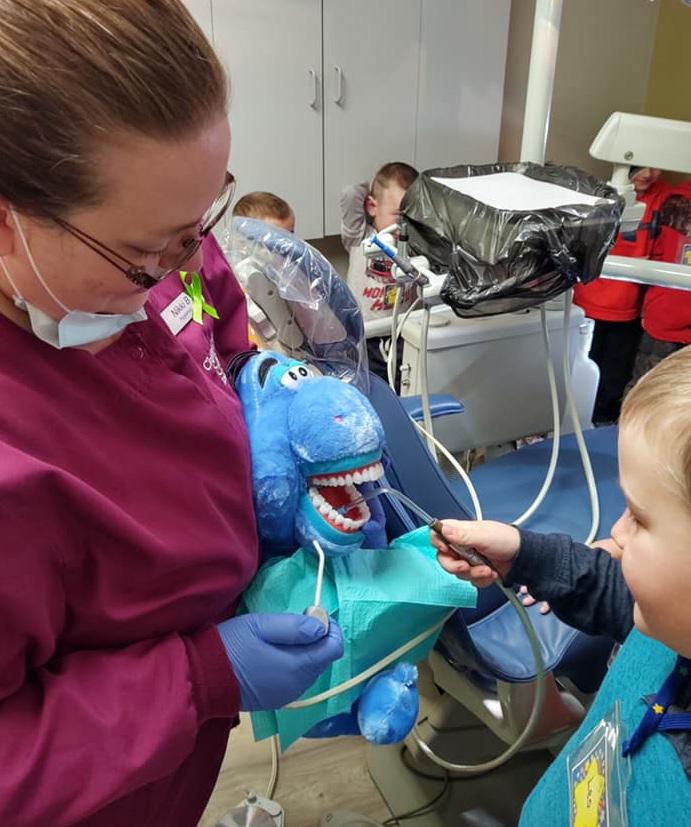
18 minute read
Student Conduct School Expectations Student Conduct & Discipline Consequences for Behavior Progressive Discipline Terms Juvenile Citations
SCHOOL EXPECTATIONS
1. Students are not allowed to leave school grounds during the day without permission or supervision. Once a student arrives on campus (dropped off by parents, gets off bus), he/she must remain on school grounds. 2. “Please” and “thank you” are important words that should be used regularly with others. 3. Gum chewing in school is a privilege allowed by teacher discretion and permission. 4. Public Display of Affection (PDA) - The staff at Tomah Middle School recognizes that genuine feelings of affection may exist between students; however, students will refrain from inappropriate intimate behaviors (such as, but not limited to, hugging, kissing, holding hands, etc.) on school grounds or at school related events. Repeated or especially inappropriate behavior in this regard may result in disciplinary actions. 5. No open containers of beverages or food are allowed in lockers, hallways, or the gymnasium. Parents are asked to discourage their child to bring an energy drinks or soda to school. All food and beverages must be consumed in the cafeteria or other designated eating areas. The only exception is students may bring a clear water bottle to school to use in the classrooms reducing the need to use the drinking fountain and miss instructional time. These containers must be used only for water. 6. Skateboards, razor scooters, rollerblades, bikes, and Heely shoes are not to be used on school property. 7. Book bags, fanny packs, purses and gym bags are to be kept in the student’s locker unless other arrangements have been made with an administrator. 8. Laser devices are not allowed in school per state statute. 9. Possession and/or use of a Personal Communication Device (i.e. cell phones, tablets, MP3’s, E-readers, etc…) by a student during the school day is a privilege that may be forfeited by a student who fails to abide by school expectations. Students may possess PCDs in school, on school property, during after school activities (e.g., extra curricular activities) and at school-related functions, they must be powered completely off (i.e., not just placed into vibrate or silent mode) and stored out of sight during school hours and during after school activities (e.g., extracurricular activities). However, technology including, but not limited to, PCDs intended and actually used for instructional purposes (e.g., taking notes, recording classroom lectures, writing papers) will be permitted, as approved by the classroom teacher or the building principal. The use of a PCD to engage in non-education-related communications is expressly prohibited. Students may use PCDs while riding to and from school on a school bus or other Board-provided vehicles or on a school bus or Board-provided vehicle during school-sponsored activities, at the discretion of the bus driver, classroom teacher, or sponsor/advisor/coach. Distracting behavior that creates an unsafe environment will not be tolerated. Finally, students should not use these devices to take pictures or video at any time during the school day unless specifically given permission by a teacher or administrator. If a student chooses to bring these items to school to use during these approved times, they must be used responsibly and the students maintain responsibility for these items. If the student feels ill and needs to contact home, he/she must call from our Counseling/Attendance Office. Doing so from a personal cell phone before reporting to the office not only slows down our ability to assist, it is in violation of school board policy. See Board Policy 5136 – Personal Communication Devices 10. Gambling of all types is prohibited. 11. No aerosol spray cans (i.e. deodorant, hairspray) are to be brought to school.
STUDENT CONDUCT & DISCIPLINE
Every student has the right to attend Tomah Middle School and participate in activities in a safe and orderly environment, free from physical or verbal threats and behavior. In order to make this goal a reality, students are required to abide by the expectations laid out and follow school rules that have been established to create a safe and orderly environment.
Controlling behavior both in and around school takes a community effort. Tomah Middle School cooperates with agencies, including law enforcement, to maintain a proper learning atmosphere. However, parents and guardians play the most important role in developing good behavior and citizenship. View Policy 5500
CONSEQUENCES FOR INAPPROPRIATE BEHAVIOR
The school has the responsibility to establish standards that promote a positive and proper learning environment. In order to fulfill this responsibility, all students, staff, and parents must be committed to a strong discipline policy that encourages accountability for actions. If a student has difficulty recognizing his/her responsibilities in relation to the expectations and rules we have set out, an adult in charge will intervene and respond with an appropriate action. These actions may include:
» Verbal reprimand/conference with school personnel » Restriction of privileges and activities » Contact with parent » Exclusion from class » Time spent in the Alec Room » Lunch or after-school detention » Parent/student conference with school personnel » Replacement/repair of damaged property » Half day detention » All day detention » In-school suspension » Out-of-school suspension » Assignment to Decisions I » Referral to police and possible citation » Recommendation for expulsion to the Tomah School Board
PROGRESSIVE DISCIPLINE TERMS
Discipline must emphasize justice and fairness. Respect for individual rights and the rights of the group are basic to sound discipline. Effective discipline should not be viewed solely as punishment, but as a process to change unacceptable behavior into acceptable conduct. Just as children need different approaches to reading, they need different approaches to discipline. Being fair means giving each student what he/she needs, not treating everyone the same. Therefore, administrative responses to discipline problems will focus on each child individually and what will work best with that student. However, as might be expected, the more serious the misbehavior, the more severe the consequence. The guidelines for our discipline plan are as follows: 1. Classroom disruption Definition - Confronting staff argumentatively, throwing objects, refusing to follow directions or making loud noises First action – Reteach Proper Behavior Additional Actions – If behavior continues, sent to Alec Room for Behavioral Plan, parent contacted **Student may be referred to Tomah Police Department for Disorderly Conduct 2. Chronic disruption or violation of school rules Definition - Behavior that disrupts the educational process of others by involvement in misconduct that reoccurs on a regular basis over a period of time Minimum action - All day detention (minimum but not limited to 5 behavior plans in one semester) Maximum action - Expulsion or assigned to attend Decisions I or an alternative educational program **Student may be referred to Tomah Police Department for Disorderly Conduct 3. Use of Profanity Definition - Use of language, either written or spoken, or conduct or gestures which are obscene, lewd, profane, vulgar or sexually suggestive Minimum action - Conference Maximum action - Suspension **Student may be referred to Tomah Police Department for Disorderly Conduct 4. Pushing and Shoving/Rough Housing Minimum action – Conference, Reteach Proper Behavior Maximum action - Suspension **Student may be referred to Tomah Police Department for Disorderly Conduct 5. Fighting Definition - Exchange of punches/hitting Minimum action - Suspension Maximum action - Expulsion or assigned to attend Decisions I or an alternative educational program **Student may be referred to Tomah Police Department for Disorderly Conduct and/or Assault/Battery 6. Use/possession of tobacco/tobacco items Definition - Smoking or possession of any smoking related materials during the school day or on the school campus Minimum action - One day in-school suspension and police notification Maximum action - Expulsion or assigned to attend Decisions I or an alternative educational program **Student will be referred to Tomah Police Department 7. Theft Definition - Stealing or attempts to steal private or school property Minimum action - Suspension Maximum action - Expulsion or assigned to attend Decisions I or an alternative educational program **Students may be referred to Tomah Police Department for theft 8. Threats/Intimidation Definition - Reasonable cause to believe that the physical safety of the student or others is endangered/unwanted actions that cause a student emotional harm and/or fear Minimum action - Conference Maximum action – Expulsion or assigned to Decisions I or an alternative program **Student may be referred to Tomah Police Department for Disorderly Conduct 9. Bullying (physical, emotional, sexual, verbal, cyber) Definition – intentional and largely unprovoked efforts to harm another; involves an imbalance of physical or psychological power Definition of physical – punching, poking, straggling, hair pulling, beating, biting, and excessive tickling Definition of emotional – includes rejecting, extorting, defaming, humiliating, blackmailing, manipulating friends, isolating, ostracizing, and pressuring peers Definition of sexual – includes exhibitionism, voyeurism, sexual propositioning, sexual harassment, and abuse involving physical contact and assault Definition of verbal – includes such acts as hurtful namecalling, teasing and gossip Definition of cyber – using computer resources to gossip, spread rumors, tease and name-calling Minimum action - Conference Maximum action - Expulsion or assigned to attend Decisions I or an alternative educational program **Student may be referred to Tomah Police Department for Harassment and/or Disorderly Conduct 10. Harassment (sexual, verbal, racial, physical) Definition of sexual - Unwanted behavior of a sexual nature Definition of verbal - Unwanted verbal comments that make a person feel bad or unsafe Definition of racial - Unwanted comments regarding a person’s ethnic make-up Definition of physical - Unwanted touching, pushing, hitting or other physical contact that makes a person feel bad or unsafe
Minimum action - Conference Maximum action - Expulsion or assigned to attend Decisions I or an alternative educational program **Student may be referred to Tomah Police Department for Harassment and/or Disorderly Conduct 11. Vandalism Definition - Abuse of school building and property Minimum action - Suspension Maximum action - Expulsion or assigned to attend Decisions I or an alternative educational program **Student may be referred to the Tomah Police Department for Criminal Damage to Property 12. Use/Possession of drugs or look-alike drugs, alcohol products, or inhalants Definition - Use/possession/distribution of controlled (illegal and prescription) substances and/or non-controlled (buy over-the-counter) substances without the written permission of a doctor Minimum action - Up to 5 days of out-of-school suspension and police notification Maximum action - Expulsion or assigned to attend Decisions I or an alternative educational program **Student will be referred to the Tomah Police Department 13. Protection of the public safety Definition - The following actions are considered to pose a threat to the welfare and health of others: detonation of explosive devices, arson, possession of a weapon, bomb threats Minimum action - Suspension or assigned to attend Decisions I or an alternative educational program Maximum action – Expulsion **Student will be referred to the Tomah Police Department 14. Dishonesty/Lying Definition – Lack of honesty or integrity – untruthful Minimum action – conference Maximum action – suspension **If student lies to a police officer, he/she could be charged with obstruction of justice JUVENILE CITATIONS
The Tomah City Council, in accordance with revised Wisconsin State Statutes, has revised its bond schedule. The majority of Tomah Middle School students are old enough to receive citations/fines for breaking state or federal laws within our school. Examples of incidents where citations may be issued include the following: theft, possession or use of cigarettes, tobacco, vaping devices, vaping, alcohol or other drugs, profane language, fighting, vandalism and damage to property, and disorderly conduct. This revision in the statutes also means a mandatory court appearance. We want students and parents to be aware that this is another option that we use when dealing with students who choose to disrupt the school atmosphere.
RESPECT TOWARD STAFF
Students are expected to show respect and courtesy toward all staff members (e.g., bus drivers, secretaries, custodians, etc.). Students will also follow any directives from a staff member. Students who display disrespect towards Tomah Middle School staff will receive detention time, suspension and/or referral to the Tomah Police Department depending upon the severity of the act.
CLASSROOM CONDUCT
Students are reminded that different teachers have different classroom expectations. Therefore, it is each student’s responsibility to become aware of what each teacher expects in the way of work and behavior and to conform to those standards. Tomah Middle School students are expected to behave in a mature, responsible manner in and out of class. These expectations are in accordance with Board Policy 5500 and 5600, Student Conduct Code Philosophy and Principles, and administrative guidelines.
PETS
Children are not to bring pets or other animals to school unless prior arrangements have been made with the classroom teacher and principal. If a pet or other animal is brought to school for a special presentation, the school will need advanced notice in order to be able to inform parents of children with allergies. If a pet is allowed to come to school, a parent must bring the pet to school, carry the pet for the presentation, and take the pet home. Pets are not permitted on school buses. If a student brings an animal without prior permission, the parent will be called to school to pick it up. Wild animals are strictly forbidden, except under the supervision of a licensed adult. View Policy 8405A
PBIS
PBIS, (Positive Behavior Intervention and Supports), is a systems change method based on a Response to Intervention (RTI) model that promotes positive behaviors in students. In the past, school-wide discipline has focused mainly on reacting to specific student misbehavior by implementing punishment-based strategies including reprimands, loss of privileges, office referrals, suspensions, and expulsions. Research has shown that the implementation of punishment, especially when it is used inconsistently and in the absence of other positive strategies, is ineffective. Introducing, modeling, and reinforcing positive social behavior is an important part of a student’s educational experience. Teaching behavioral expectations and rewarding students for following them is a much more positive approach than waiting for misbehavior to occur before responding. The purpose of school-wide PBIS is to establish a climate in which appropriate behavior is the norm. For more information about PBIS on the national level, log onto PBIS.org.

RTI
RtI (Response to Intervention) is a systematic approach to providing every student with the additional time and support needed to learn at high levels. RtI’s underlying premise is that schools should not wait until students fall far enough behind to qualify for special education to provide them with the help they need. Instead, schools should provide targeted and systematic interventions to all students as soon as they demonstrate the need. In Tomah, our main goal is to provide every student with the skills and knowledge needed to be self-sufficient and successful by the time he/she graduates from high school.



DRESS CODE
The Board recognizes that each student’s mode of dress, clothing, and grooming is a manifestation of personal style and individual preference. The Board will not interfere with the right of students and their parents to make decisions regarding their appearance, except when their choices interfere with the educational program of the schools. Accordingly, the Board prohibits student dress, clothing, or grooming practices which: » present a hazard to the health or safety of the student or to others in the school; » materially interfere with school activities, or substantially disrupt the educational environment; or » prevent students from achieving educational objectives because of blocked vision or restricted movement. The principal or designee shall serve as the initial arbiter of student dress, clothing, and grooming. Dress, clothing or grooming constitutes expressive speech if the individual wearing or displaying the dress, clothing, or grooming intends to convey a particularized message through the wearing or display and the likelihood was great threat the message would be understood by those who viewed it. This standard shall apply whether the message is conveyed by depiction, words, or a combination of the two. If the dress, clothing, or grooming does not constitute expressive speech, it can be regulated by school officials.
Expressive speech in the form of dress, clothing, or grooming will be regulated consistent with applicable legal principles. Expressive speech in the form of dress, clothing, or grooming prohibited if such speech is not protected by the First Amendment of the U.S. Constitution, such as dress, clothing or grooming that constitutes: » Obscenity; » Language or depictions intended to incite violence or incite the viewer to an immediate breach of the peace; » Defamation; or » A true threat.
Consistent with the legal parameters established under the First Amendment of the U.S. Constitution. School officials can also regulate and prohibit dress, clothing, or grooming containing otherwise expressive speech if the dress, clothing, or grooming: » Can reasonably be viewed as promoting illegal drug use; or » Is vulgar, lewd, indecent, or plainly offensive. Additionally, school officials can regulate dress, clothing or grooming if they can reasonably forecast that it will materially interfere with or substantially disrupt a school activity, such an interference or disruption actually occurs, or if the expression intrudes on the rights of other students. Such prohibited dress, clothing or grooming may include dress, clothing, or grooming that includes the use of , discriminatory language including racial or ethnic slurs, or negative stereotypes, Under this standard, the wearing or display of the Confederate flag during the school day and on school property is prohibited. No protected speech may be prohibited on the basis of disagreement by school officials with the specific point of view expressed if the topic is otherwise permitted by this policy (e.g. permitting depictions of support for one political party, but prohibiting depictions of support for the other). The District administration may establish the dress, clothing or grooming requirements for members of the athletic teams, bands, and other school groups when representing the District at a public event or within the context of school-sponsored and controlled curriculum or activities. Where appropriate, a uniform or specific dress, clothing, or grooming requirement shall be used for students when representing the District as described. Students who violate the foregoing rules will not be admitted to class and may be subject to additional consequences. If the dress, clothing, or grooming cannot be removed or concealed, the student may be sent home after contact is made with the student’s parent/guardian.
View Policy 5511
BULLYING / HARASSMENT
It is the policy of the Board to maintain an educational environment that is free from all forms of harassment. This commitment applies to all District operations, programs, and activities. All students, administrators, teachers, staff, and all other school personnel share responsibility for avoiding, discouraging, and reporting any form of harassment. This policy applies to conduct occurring in any manner or setting over which the Board can exercise control, including on school property, or at another location if such conduct occurs during an activity sponsored by the Board. The Board will not tolerate any form of harassment and will take all necessary and appropriate actions to eliminate it, including suspension or expulsion of students and disciplinary action against any other individual in the School District community. Additionally, appropriate action will be taken to stop and otherwise deal with any third party who engages in harassment against our students. The Board will vigorously enforce its prohibition against harassment based on the traits of sex (including gender status, change of sex, or gender identity), race, color, national origin, religion, creed, ancestry, marital or parental status, sexual orientation or physical, mental, emotional or learning disability, or any other characteristic protected by Federal or State civil rights laws (hereinafter referred to as “Protected Classes”), and encourages those within the School District community as well as Third Parties, who feel aggrieved to seek assistance to rectify such problems. Additionally, the Board prohibits harassing behavior directed at students for any reason, even if not based on one of the Protected Classes, through its policies on bullying (See Policy 5517.01). Harassment may occur student-to-student, student-to-staff, staff-to-student, male-to-female, female-to-male, maleto-male, female-to-female, or other forms. The Board will investigate all allegations of harassment and in those cases where harassment is substantiated, the Board will take immediate steps designed to end the harassment, prevent its reoccurrence, and remedy its effects. Individuals who are found to have engaged in harassment will be subject to appropriate disciplinary action. View Policy 5517
CARE OF MATERIALS
Students are responsible for all textbooks and library materials issued to them during the school year. All lost or damaged books and other school materials must be paid for. All money collected for damaged property is recorded by the office and paid to the proper fund for replacement purposes. If a lost book is found, money paid will be refunded. TEXTBOOK FINES Teachers are to turn in all fines for lost or damaged books at the end of each semester to the principal’s secretary in the high school office. Fines are as follows:
Lost or Damaged Textbooks Beyond Use
Yrs Old % of Cost
1 100
2 3 90 80
4 5 6 7 8 9 10 70 60 50 40 30 20 10
If the book is damaged beyond reasonable repair, the charge should correspond to the above Lost Book schedule.
If the cover is bent, writing is discovered on pages or cover, or other damage is evident, the following schedule should be followed:
Damaged Textbooks Yrs Old Cost - Hard Cvr Cost- Soft Cvr 1 7.00 3.00 2 7.00 3.00 3 6.50 3.00 4 6.50 3.00 5 6.00 2.50 6 6.00 2.50 7 5.50 2.50 8 5.50 2.00 9 5.00 2.00 10 5.00 2.00








